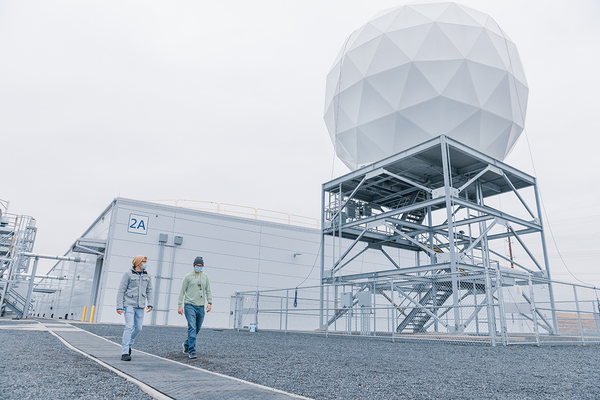Canada AI Law & Policy: A Comprehensive Guide

Introduction
Canada has emerged as a global leader in AI governance, setting precedents with its national strategy and comprehensive regulatory approach. This guide offers an in-depth look at Canada's AI policies, laws, and future directions.
1. Canada's AI Leadership
National AI Strategy
- First in the World: Canada proudly claims the title of being the first country to introduce a national AI strategy.
- Global Impact: This early move has positioned Canada as a thought leader in AI governance on the international stage.
Pioneering Regulatory Framework
- Canada is among the first countries worldwide to propose a horizontal legal framework to regulate AI technologies across sectors.
- This approach aims to create a balanced ecosystem that fosters innovation while ensuring ethical AI development and deployment.
2. AI and Data Act (Bill C-27)
Overview
- Introduced: June 2022
- Status: Under review by the Canadian Parliament's Standing Committee on Industry and Technology
- Part of: The Digital Charter Implementation Act
Key Features
- Scope:
- Excludes public sector AI use
- Focuses on private sector high-impact AI systems
- High-Impact AI Systems:
- Employment screening systems
- Biometric identification
- Healthcare and emergency services AI
- Content moderation and dissemination tools
- AI in law enforcement, courts, and administrative decision-making
- Core Obligations:
- Human Oversight and Monitoring
- Transparency in AI Functionality
- Fairness and Equity in AI Decisions
- Safety Measures
- Clear Accountability Structures
- Validity and Robustness of AI Systems
- Governance:
- Creation of an AI and Data Commissioner role
- Commissioner to support the Minister of Innovation, Science and Industry in enforcing the Act
3. Generative AI Code of Conduct
- Type: Voluntary code
- Published: September 2023
- Purpose:
- Interim measure before the AI and Data Act is passed
- Guides responsible development and management of advanced generative AI systems
- Adoption: 23 organizations have signed as of the latest update
4. Directive on Automated Decision-Making
- Effective Date: April 2019
- Focus: Automated systems in administrative decision-making
- Key Requirements:
- Algorithmic Impact Assessments
- Transparency and notice to impacted parties
- Ongoing monitoring, testing, and quality assurance
5. Future Developments
Legislative Progress
- The AI and Data Act (Bill C-27) is currently in committee stage
- Must be passed before the 2025 federal election
Government Initiatives
- AI Safety Institute:
- Funding: Over $50 million
- Focus: Addressing risks of advanced or "nefarious" AI systems
- AI and Data Commissioner:
- To be established to support enforcement of the AI and Data Act
- Financial Commitment:
- In June 2023, Prime Minister Justin Trudeau announced a $2.4bn package to support AI-related initiatives
Additional Ai context throughout Canada
- Historical Context and Evolution of Canada's AI Strategy
Canada's journey in AI began long before it became a global buzzword. In the 1980s, Canadian researchers like Geoffrey Hinton, Yoshua Bengio, and Richard Sutton were already making groundbreaking contributions to machine learning and neural networks.
Key milestones:
- 2002: Canadian Institute for Advanced Research (CIFAR) launches its Neural Computation and Adaptive Perception program.
- 2017: Pan-Canadian Artificial Intelligence Strategy announced with $125 million in funding.
- 2019: Declaration of the International Panel on Artificial Intelligence, co-led by Canada and France.
- Pan-Canadian Artificial Intelligence Strategy
Launched in 2017, this strategy aims to position Canada as a world leader in AI research and innovation. Its four main pillars are:
- Increase the number of outstanding AI researchers and skilled graduates in Canada.
- Establish interconnected nodes of scientific excellence in Canada's three major centers for AI: Edmonton, Montreal, and Toronto-Waterloo.
- Develop global thought leadership on the economic, ethical, policy, and legal implications of AI advances.
- Support a national research community on AI.
The strategy has led to the creation and support of key AI institutes:
- Alberta Machine Intelligence Institute (AMII) in Edmonton
- Mila in Montreal
- Vector Institute in Toronto
- Provincial AI Initiatives
Quebec:
- $100 million investment in AI research and innovation (2017-2022)
- Focus on AI ethics and responsible development
Ontario:
- $50 million investment in Vector Institute
- AI-focused streams in Ontario Immigrant Nominee Program
Alberta:
- $100 million investment in AI over five years
- AI Pathways Partnership to develop AI talent
- AI in Canadian Academia
Canadian universities have been at the forefront of AI research:
- University of Toronto: Home to pioneers like Geoffrey Hinton
- Université de Montréal: Where Yoshua Bengio leads Mila
- University of Alberta: Richard Sutton's reinforcement learning work
Notable contributions:
- Deep learning breakthroughs
- Advances in reinforcement learning
- Ethical AI research
- Ethical AI Framework
Canada has been proactive in addressing AI ethics:
- Montreal Declaration for Responsible AI Development (2018)
- Treasury Board of Canada's Directive on Automated Decision-Making (2019)
- Advisory Council on Artificial Intelligence's work on commercialization and ethical use of AI
Key principles:
- Transparency
- Accountability
- Fairness and non-discrimination
- Safety and security
- Privacy
- AI in Key Sectors
Healthcare:
- AI for medical imaging analysis
- Predictive analytics for patient care
- Drug discovery acceleration
Finance:
- AI-driven fraud detection
- Automated customer service
- Algorithmic trading
Natural Resources:
- Predictive maintenance in oil and gas
- Optimization of mining operations
- AI for climate change mitigation in forestry
- International Collaborations
Canada has been actively engaging in global AI initiatives:
- Co-founding the Global Partnership on Artificial Intelligence (GPAI)
- Participation in the OECD AI Principles
- Bilateral AI cooperation agreements with the UK, EU, and Japan
- AI Startups and Innovation Ecosystem
Canada's AI startup scene is thriving:
- Element AI (acquired by ServiceNow)
- Deep Genomics
- Integrate.ai
Government support:
- Innovation Superclusters Initiative
- Strategic Innovation Fund
- Scientific Research and Experimental Development (SR&ED) Tax Incentive Program
- AI Skills Development and Education
Initiatives:
- CIFAR AI and Society Program
- Canada-wide AI4Good Lab
- AI-focused programs at universities and colleges
Industry partnerships:
- Google Brain Toronto
- Microsoft Research Montreal
- DeepMind Alberta
- Challenges and Criticisms
- Brain drain concerns as top talent is recruited by U.S. tech giants
- Balancing innovation with privacy and ethical concerns
- Ensuring AI benefits are distributed equitably across Canadian society
- Addressing potential job displacement due to AI automation
- Future Outlook
Predictions:
- Increased focus on AI applications in climate change and healthcare
- Growth in AI regulation and governance frameworks
- Expansion of AI research beyond major urban centers
Upcoming initiatives:
- Proposed AI and Data Act (part of Bill C-27)
- Enhanced funding for AI in healthcare post-COVID-19
- Comparison with Other Countries
- Canada's emphasis on ethical AI contrasts with China's more application-focused approach
- More centralized strategy compared to the U.S.'s largely private sector-driven AI development
- Similar focus on AI ethics and regulation as the EU, but with less prescriptive legislation
Conclusion
Canada's approach to AI governance sets a global benchmark, balancing innovation with ethical considerations. As these policies evolve, businesses and researchers in AI must stay informed and adapt to ensure compliance and responsible AI development.
Additional Resources
Here is the information available regarding the resources you mentioned:
- Government of Canada AI Strategy Website: The search results do not specifically mention a dedicated website for the Government of Canada's AI strategy. However, there are references to Canada's efforts in AI, such as the Voluntary Code of Conduct for Generative AI and the Artificial Intelligence and Data Act (AIDA) included in Bill C-27[1][2].
- Full Text of Bill C-27: The search results do not provide the full text of Bill C-27. However, they do mention that Bill C-27, also known as the Digital Charter Implementation Act, 2022, includes the Artificial Intelligence and Data Act (AIDA) and is currently being studied by the House of Commons Standing Committee on Industry and Technology[1][4].
- Generative AI Code of Conduct Document: There is information about Canada's Voluntary Code of Conduct on the Responsible Development and Management of Advanced Generative AI Systems. This code aims to guide the development, deployment, and use of generative AI systems in Canada and is part of the government's initiative to ensure responsible AI practices[1][2][4].
If you are looking for specific documents or websites, you may need to visit official Canadian government websites or contact relevant departments for more detailed information.
Citations:
[1] https://www.canada.ca/en/innovation-science-economic-development/news/2024/05/eight-organizations-to-join-canadas-voluntary-ai-code-of-conduct.html
[2] https://ised-isde.canada.ca/site/ised/en/consultation-development-canadian-code-practice-generative-artificial-intelligence-systems/canadian-guardrails-generative-ai-code-practice
[3] https://science.gc.ca/site/science/en/interagency-research-funding/policies-and-guidelines/use-generative-artificial-intelligence-development-and-review-research-proposals/advice-ad-hoc-generative-ai-panel-external-experts
[4] https://gowlingwlg.com/en/insights-resources/articles/2023/generative-ai-in-canada
Disclaimer: This guide is for informational purposes only and should not be considered legal advice. For specific legal guidance, please consult with a qualified legal professional.





